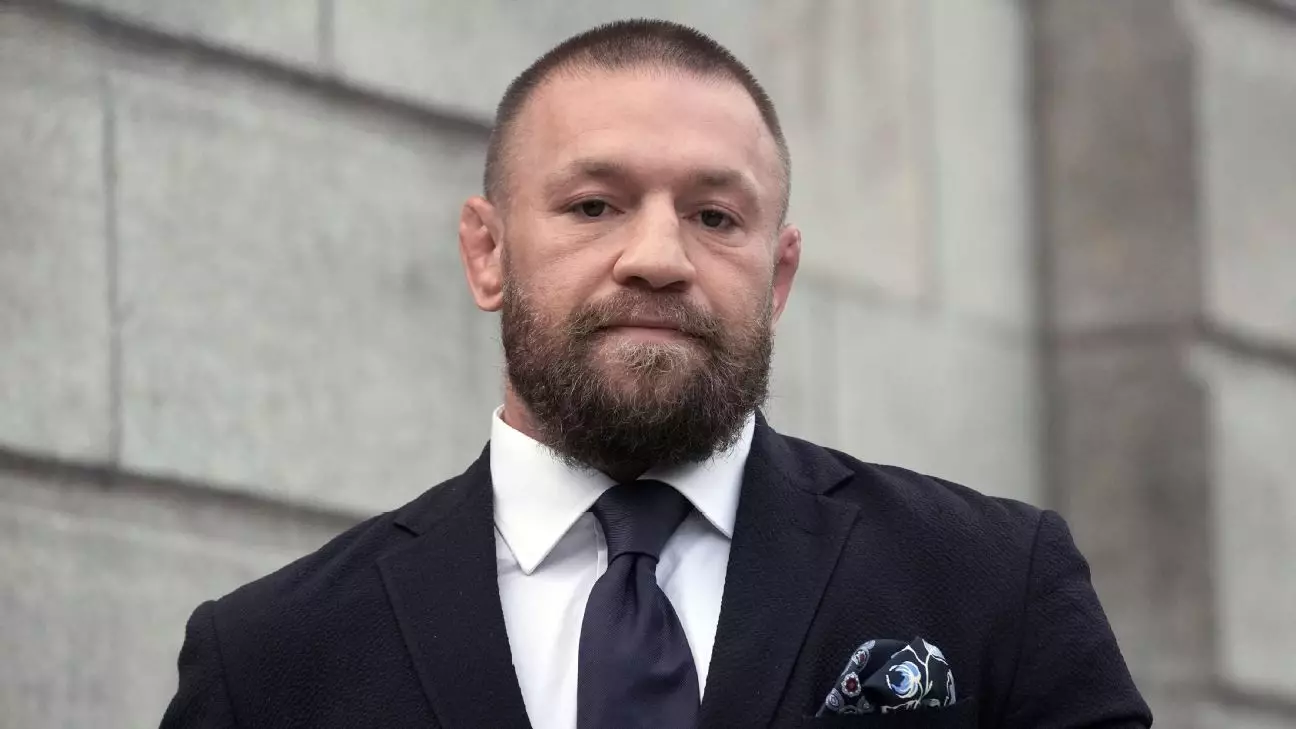In a landmark ruling that has reverberated through the sports and legal communities, a Dublin jury found UFC superstar Conor McGregor liable for sexual assault, ordering him to pay the accuser 248,000 euros (approximately $257,000). This case, which emerged from an alleged 2018 incident in a hotel room following a Christmas party in Dublin, reflects wider societal issues surrounding accountability, especially for public figures. The jury’s decision, coming after several days of deliberation, not only underscores the gravity of the accusations but also highlights the complexities involved in such high-profile cases.
The claimant presented a harrowing testimony, alleging that McGregor violently assaulted her, choked her, and at one point, made her fear for her life. The emotional weight of her account was palpable in the courtroom, deepening the gravity of the situation. A medical professional corroborated her injuries, noting the severe bruising that indicated an intense struggle. Such corroboration often plays a pivotal role in legal battles of this nature, lending credence to the accusations that might otherwise be dismissed.
Despite the jury’s ruling, McGregor continued to assert his innocence throughout the proceedings, claiming the encounter was consensual. He vehemently denied the allegations, openly challenging the credibility of the accusations and defending his reputation as a public figure. This stark contrast between the victim’s experience and McGregor’s narrative illustrates the profoundly personal and emotionally charged nature of sexual assault cases, particularly when they involve celebrities.
The attorney representing the woman painted a portrait of McGregor that countered the image of a champion athlete: “He’s not a man, he’s a coward,” was a portrayal aimed at showcasing the perceived recklessness of someone who, despite being lauded for his prowess in the octagon, allegedly exhibited cowardice in a private scenario. Such comments serve to emphasize the dichotomy between public perception and personal accountability.
The defense team was clear in their strategy, urging jurors to separate their feelings toward McGregor from the testimonies and facts presented in the case. This tactic highlights a common challenge in legal proceedings involving high-profile defendants—the struggle to maintain objectivity amidst personal biases toward the accused.
As the dust settles from this ruling, the implications extend beyond McGregor’s personal life and career. The case not only opens discussions about accountability among powerful individuals but also brings to the forefront the ongoing societal conversation about sexual violence and the treatment of victims. The ruling can be seen as a beacon of hope for individuals who have felt silenced and unprotected within institutions that often prioritize reputation over justice.
Moreover, in an era where social media and public opinion can dramatically shape narratives, this case illustrates the delicate balance between public image and personal conduct. McGregor, once a dominant figure in mixed martial arts and regarded for his larger-than-life persona, now faces a public relations crisis that could alter the trajectory of his career permanently.
Additionally, it raises questions about the effectiveness of existing legal frameworks in adequately addressing issues of sexual assault. Prosecutors had previously decided against pursuing charges due to “insufficient evidence,” a decision that spurred frustration among advocates for victims’ rights. The contrast between the jury’s civil ruling and the earlier reluctance to pursue criminal prosecution highlights a potential gap in how such cases are addressed within the judicial system.
As the sporting world processes the ramifications of this decision, it’s crucial for dialogue surrounding sexual violence and the accountability of high-profile individuals to continue. The conversation must extend to the structures that support or hinder victims from coming forward. A paradigm shift is needed—both legally and socially—to foster a culture of support and belief for those who bravely share their stories.
This serious legal finding against McGregor is more than just a personal fight; it is a flashing signal to society to reevaluate how we approach, discuss, and handle allegations of sexual assault, particularly when they involve well-known figures. The judicial ruling may serve as a catalyst for change, bringing forward essential discussions on consent, power dynamics, and the necessity of believing victims in their pursuit of justice.


Leave a Reply